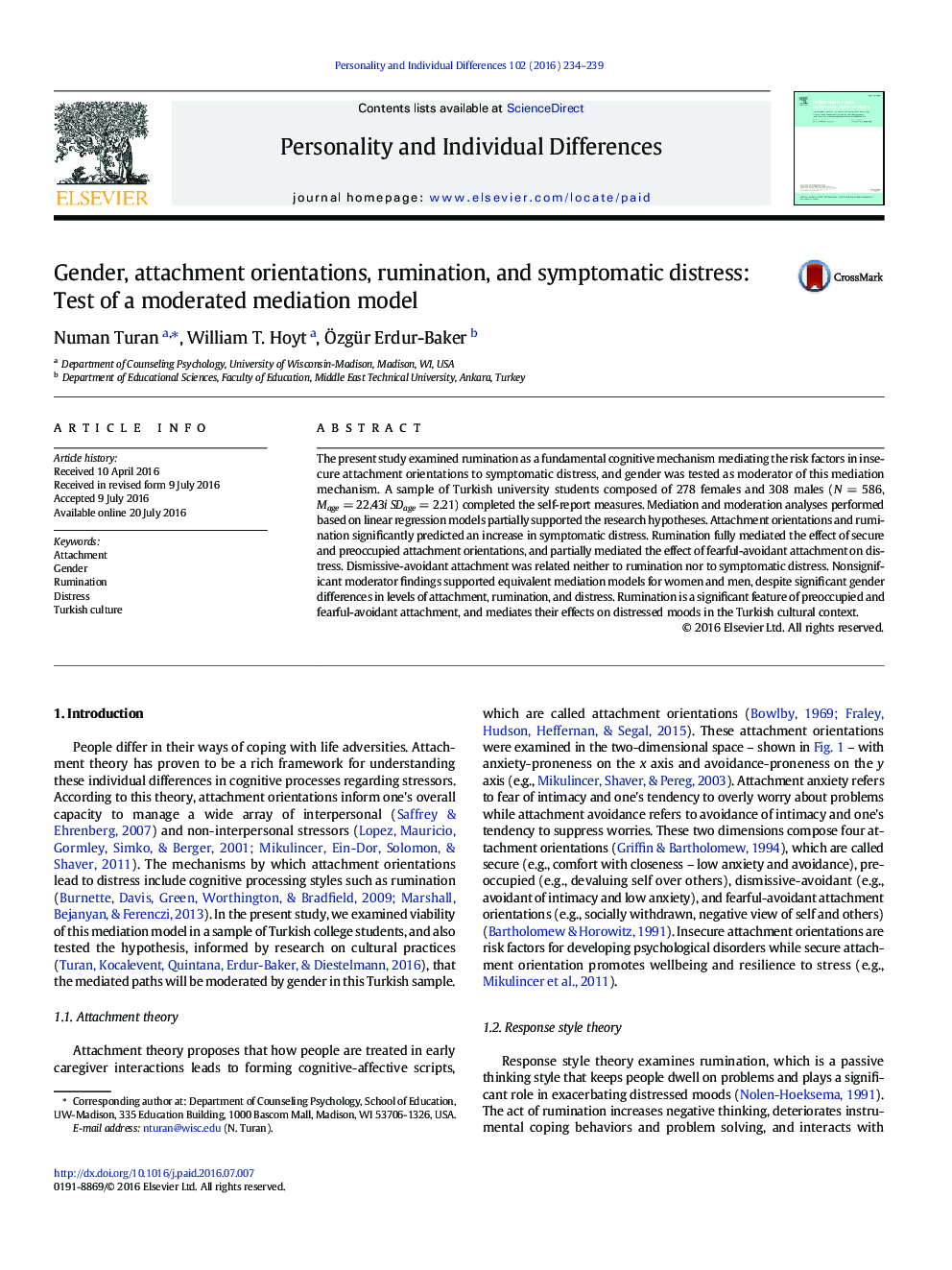| Article ID | Journal | Published Year | Pages | File Type |
|---|---|---|---|---|
| 889677 | Personality and Individual Differences | 2016 | 6 Pages |
•Rumination mediated the relationship of preoccupied and secure attachment with distress.•Rumination partially mediated the relationship of fearful attachment with distress.•Dismissive attachment was related to neither rumination nor symptomatic distress.•The mediation model applied to Turkish women and men statistically the same.•Turkish women and men differed only in rumination, distress, and preoccupied attachment.
The present study examined rumination as a fundamental cognitive mechanism mediating the risk factors in insecure attachment orientations to symptomatic distress, and gender was tested as moderator of this mediation mechanism. A sample of Turkish university students composed of 278 females and 308 males (N = 586, Mage = 22.43i SDage = 2.21) completed the self-report measures. Mediation and moderation analyses performed based on linear regression models partially supported the research hypotheses. Attachment orientations and rumination significantly predicted an increase in symptomatic distress. Rumination fully mediated the effect of secure and preoccupied attachment orientations, and partially mediated the effect of fearful-avoidant attachment on distress. Dismissive-avoidant attachment was related neither to rumination nor to symptomatic distress. Nonsignificant moderator findings supported equivalent mediation models for women and men, despite significant gender differences in levels of attachment, rumination, and distress. Rumination is a significant feature of preoccupied and fearful-avoidant attachment, and mediates their effects on distressed moods in the Turkish cultural context.
